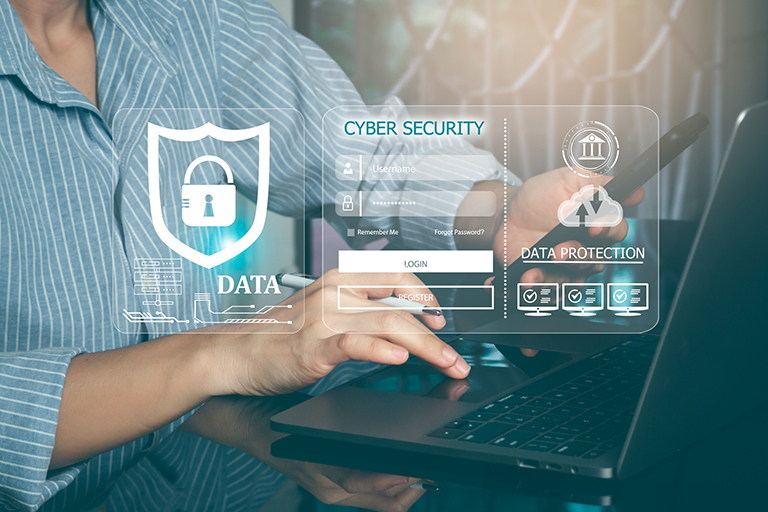What to Do After a Data Breach: 10 Steps to Protect Yourself and Your Credit

Why it matters: A data breach isn’t just about losing control of your information; it’s about staying ahead of potential identity theft, financial fraud, and emotional stress. Familiarizing yourself with helpful tools and safeguarding your credit before a breach is the best defense, but if you’ve already been impacted, taking these actions quickly can help protect you from further damage.
How to Protect Yourself After a Data Breach:
- Monitor financial statements and credit reports regularly for suspicious activity.
- Change passwords on any compromised accounts and enable multi-factor authentication where possible.
- Freeze your credit with major credit bureaus to prevent fraudulent accounts from being opened in your name.
- Explore identity theft protection services if needed, especially if sensitive personal information like SSNs have been exposed.
- Be cautious of phishing attempts that may follow a breach and verify communication sources before providing further information.
The scoop: Data breaches have become an all-too-common part of modern life. In 2023 alone, U.S. data breaches hit record highs, affecting over 422 million individuals, according to the Identity Theft Resource Center. Globally, cyberattacks and breaches are on the rise, with average costs reaching a staggering $4.45 million globally in 2023, a 15% increase from 2020 to 2023.
For credit union members, the security of your personal and financial information is a top priority, especially as we embrace the convenience and benefits of digital banking. While the digital age offers unprecedented access and control over your finances, it’s essential to stay informed and take proactive steps to protect yourself. Understanding possible risks and taking immediate steps to protect yourself after a breach is crucial to safeguarding your financial well-being.
Concerned your personal data has been compromised and wondering what happens now? A data breach can feel overwhelming but knowing what to do next is critical to protecting yourself and minimizing damage. Here’s a step-by-step guide to take control and stay ahead of potential threats:
1. Check if your information was leaked
First, confirm if your data was involved in the breach. Tools like Have I Been Pwned can help you see if your email or personal info has been compromised. Many companies will notify affected individuals after experiencing a breach, but it’s smart to be proactive in checking these lists periodically.
2. Freeze your credit
Cybercriminals often use stolen personal information to open new credit accounts in your name. Help prevent this by freezing your credit with major bureaus like Equifax, TransUnion, and Experian. It’s free and won’t impact your current credit score (but remember to unfreeze when applying for a new credit card or loan!).
3. Change your passwords
One of the fastest ways to secure your accounts is by updating your passwords. Start with affected accounts and use strong, unique passwords for each system. Consider using a secure password manager to easily use and keep track of your updated unique login credentials.
4. Enable two-factor authentication
Add an extra layer of protection by enabling two-factor authentication (2FA) wherever possible, especially on banking and email accounts. Doing so ensures that even if someone does gain access to your password data, they need an additional verification code to log into your multi-factor authentication-enabled systems.
5. Monitor your financial accounts
Keep a close eye on your bank and credit card statements, especially if you’re notified of your data being subject to a financial institution breach elsewhere. Fraudulent transactions—visible to you as unrecognized charges—are often the first sign of data misuse. Report any suspicious communication or banking activity to your financial institution(s) immediately.
6. Set up credit monitoring
Speaking of looking after your financial accounts, you may be wondering what the best credit monitoring services are. Reputable credit monitoring services like Experian, Credit Karma, and Identity Guard will alert you if there are unusual changes to your credit report, like a new loan or credit inquiry. GNCU members have access to comprehensive credit solutions like My Credit Health to help you stay current with your credit.
7. Watch out for phishing scams
After a data breach, scammers might target you with convincing phishing emails or texts. Learning how to spot phishing scams and attempts before interacting with nefarious links or attachments is critical for consumer safety. Pro tip: Avoid clicking links or downloading attachments from unknown sources, and always verify email addresses or phone numbers, even if the sent message appears legitimate.
8. File an identity theft report if needed
If you notice fraudulent activity, file a report with the Federal Trade Commission (FTC) through IdentityTheft.gov. This gives you documentation to help resolve disputes with creditors and protect your rights as a consumer.
9. Secure your online accounts
If a hacker gained access to your email or social media accounts, you’ll want to learn how to recover your hacked accounts. Look for “recover hacked accounts” guides on the platforms you use and follow their platform-specific recovery steps to regain control.
10. Safeguard your Social Security number
One of the most alarming thoughts after a data breach is often: “Is my Social Security number safe?” If your Social Security number was exposed or compromised in a data breach, place a fraud alert on your credit report or consider a credit freeze. These steps prevent identity thieves from taking out loans or opening accounts in your name. For extra security, explore these third-party identity theft protection services.
Remember: You can’t always prevent a data breach from happening, but you can control your response. These tips can help you stay vigilant, keep your information secure, and act fast if you notice anything out of the ordinary. The sooner you safeguard your sensitive information, the better you can protect yourself, your data, and your financial health from future damages.

